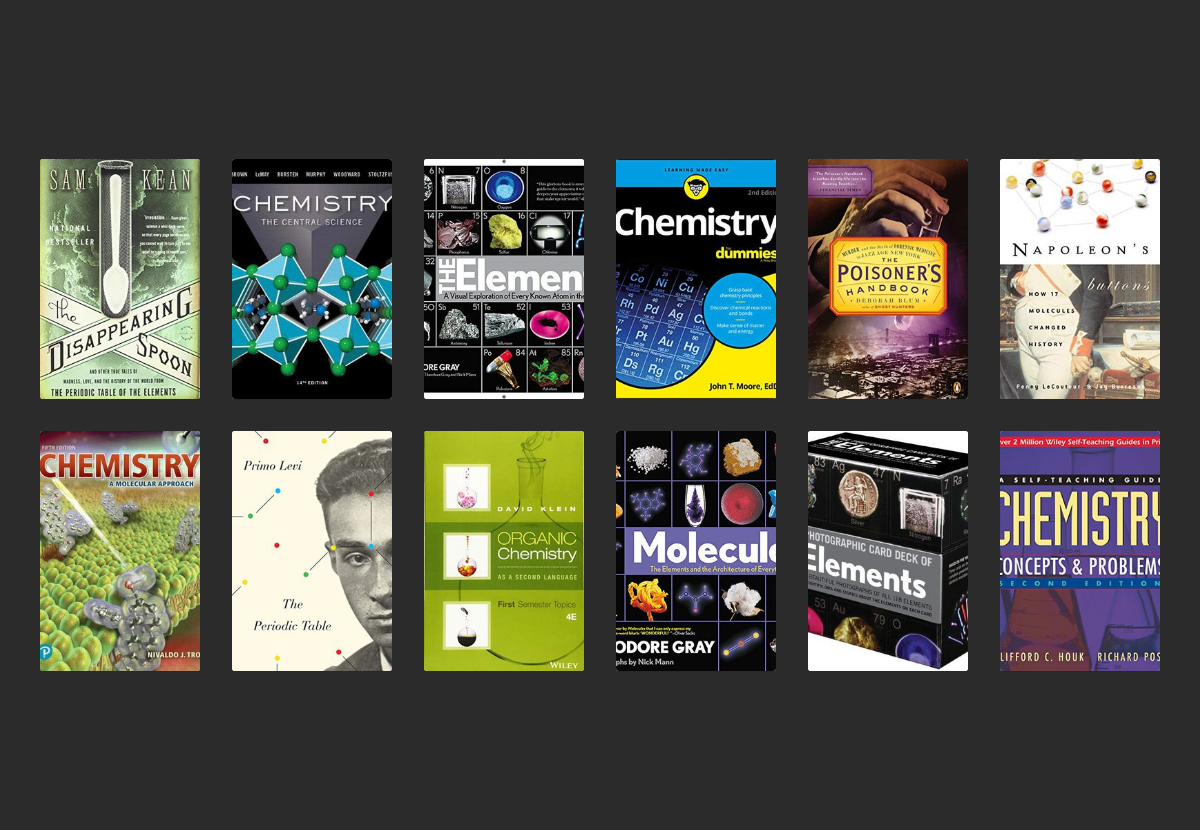Exploring The Intricacies Of Chemical Reactions

Are you interested in delving into the captivating world of chemistry? Chemistry read is not just about understanding the elements and compounds; it’s an exploration of how different substances interact, transform, and create new materials that shape our everyday lives. This field of science is crucial for various applications, from developing pharmaceuticals to understanding environmental processes. Whether you are a student trying to grasp the basics or a science enthusiast eager to learn more, this article will guide you through the essential aspects of chemistry.
Understanding chemistry can be both rewarding and challenging. The beauty of chemistry lies in its complexity and the way it connects seemingly unrelated phenomena. By engaging in a chemistry read, you can uncover the secrets behind molecular structures, chemical bonds, and reactions. This knowledge not only enhances our comprehension of the natural world but also empowers us to innovate and solve real-world problems.
In this article, we will cover various topics related to chemistry, including the fundamental concepts, significant discoveries, and practical applications. We will also explore some common questions that arise in the study of chemistry, making it easier for you to engage with the material. So, whether you're preparing for an exam or simply curious about the subject, let’s dive into the fascinating realm of chemistry!
What is Chemistry and Why is it Important?
Chemistry is often called the "central science" because it connects physics with other natural sciences such as biology, geology, and environmental science. It plays a critical role in our understanding of the universe and the creation of new materials. Here are some reasons why chemistry is essential:
- Understanding the composition and behavior of matter.
- Developing new drugs and treatments in medicine.
- Creating sustainable materials and energy sources.
- Addressing environmental challenges and pollution control.
How Does Chemistry Impact Our Daily Lives?
The influence of chemistry extends beyond the laboratory and into our everyday experiences. Here are some everyday applications of chemistry:
- Cooking: Understanding how ingredients react during cooking can enhance flavors and textures.
- Cleaning: Household cleaners and detergents are formulated through chemistry to effectively remove dirt and stains.
- Personal Care: Chemistry is involved in the formulation of cosmetics and skincare products.
- Nutrition: The study of food chemistry helps us understand nutrients and their impact on health.
What Are the Branches of Chemistry?
Chemistry is a vast field with several branches, each focusing on different aspects of matter and its interactions. The primary branches include:
- Organic Chemistry: The study of carbon-containing compounds and their properties.
- Inorganic Chemistry: Deals with inorganic compounds, including metals and minerals.
- Physical Chemistry: Combines principles of physics and chemistry to study the behavior of matter.
- Analytical Chemistry: Focuses on the composition of substances and the techniques used to analyze them.
Who are Some Notable Chemists in History?
Throughout history, many chemists have made significant contributions to the field. Here are a few notable figures:
| Name | Contribution | Year Active |
|---|---|---|
| Marie Curie | Research on radioactivity | 1890s - 1930s |
| Dmitri Mendeleev | Periodic table of elements | 1860s |
| Linus Pauling | Quantum chemistry and molecular biology | 1920s - 1990s |
| Rosalind Franklin | DNA structure research | 1940s - 1950s |
What is the Role of Chemistry in Environmental Science?
Chemistry plays a vital role in understanding and addressing environmental issues. Here are some key areas where chemistry intersects with environmental science:
- Pollution Control: Chemical analysis helps identify pollutants and develop strategies to mitigate their effects.
- Climate Change: Understanding greenhouse gases and their impact on global warming is crucial for developing solutions.
- Resource Management: Chemistry aids in the sustainable management of natural resources, including water and minerals.
- Renewable Energy: Research in chemistry is essential for developing new energy technologies, such as solar cells and biofuels.
How Can You Start Your Chemistry Journey?
If you're interested in exploring chemistry further, here are some steps to get you started:
What Resources Are Available for Chemistry Study?
There are numerous resources available for those interested in chemistry. Here are some recommendations:
- Textbooks: Look for introductory chemistry textbooks that cover fundamental concepts.
- Online Courses: Websites like Coursera and Khan Academy offer free and paid chemistry courses.
- YouTube Channels: Educational channels provide video tutorials and experiments that make learning fun.
- Apps: Chemistry apps can help with learning formulas, periodic tables, and conducting virtual experiments.
In conclusion, a chemistry read can open up a world of understanding about how matter interacts and transforms. Whether you're fascinated by the subject or seeking to improve your knowledge, the exploration of chemistry is a rewarding journey filled with discovery and innovation. Embrace the wonders of chemistry, and you may uncover insights that can change your perspective on the world around you.
ncG1vNJzZmirn521b6%2FOpmasp5idu6bD0qCcq7FhZXyktMSmoKysoq56s7HAnWWhrJ2h